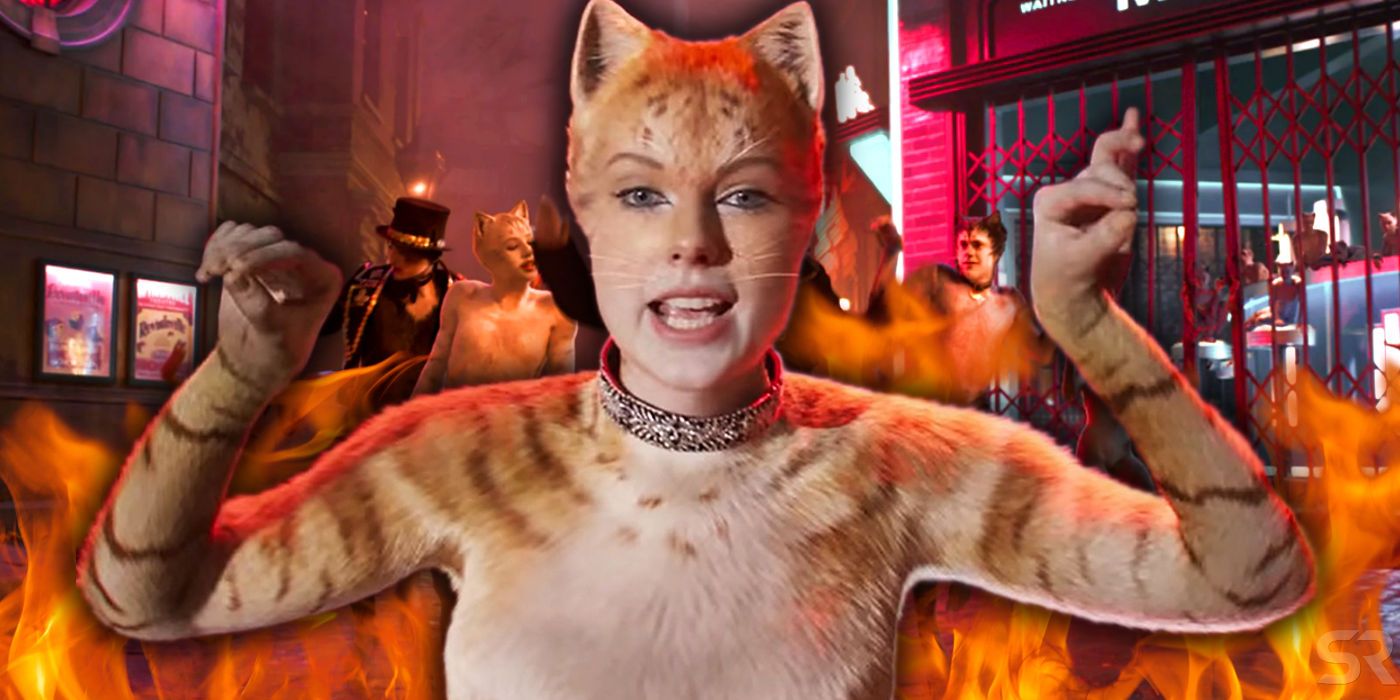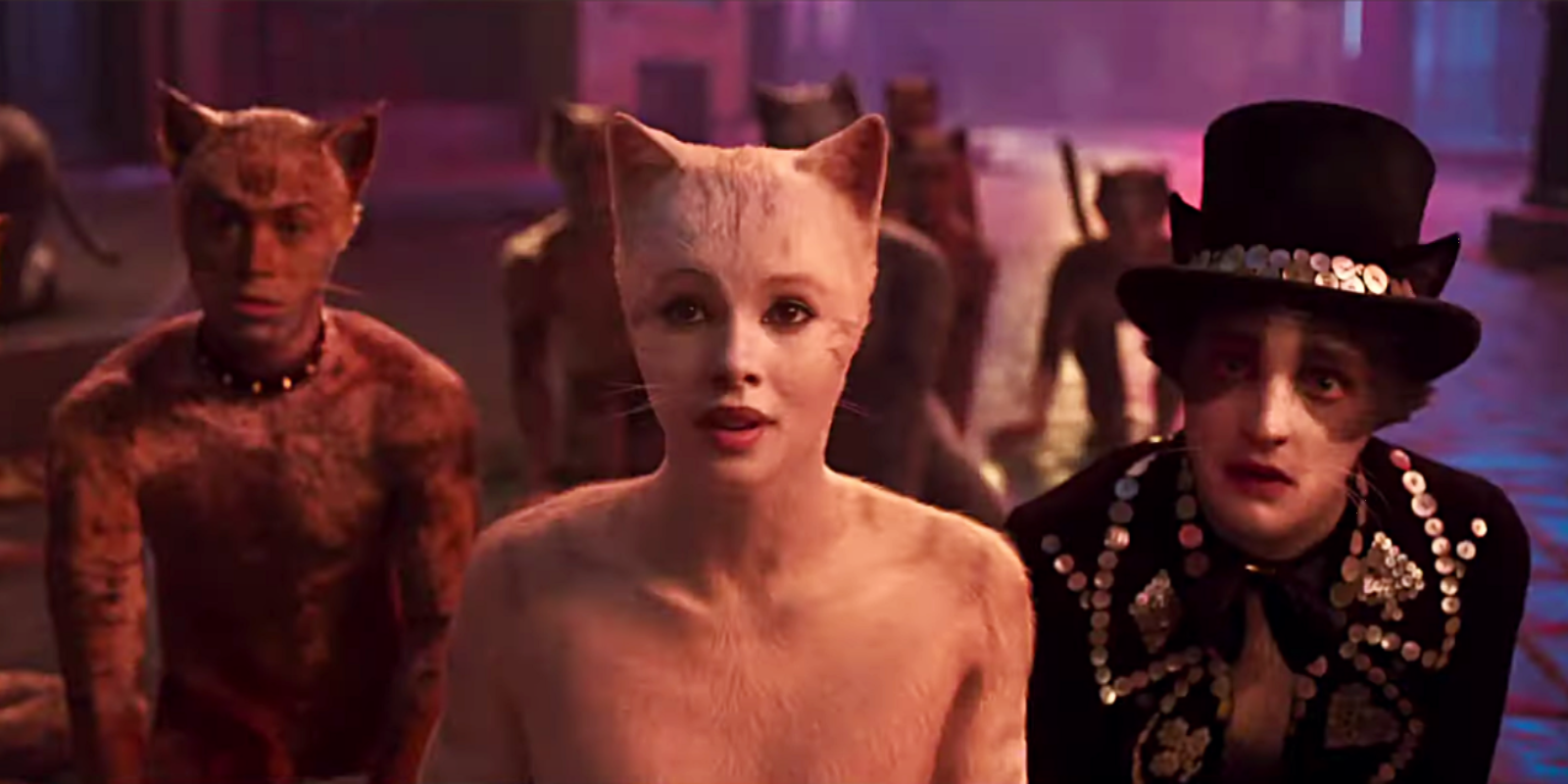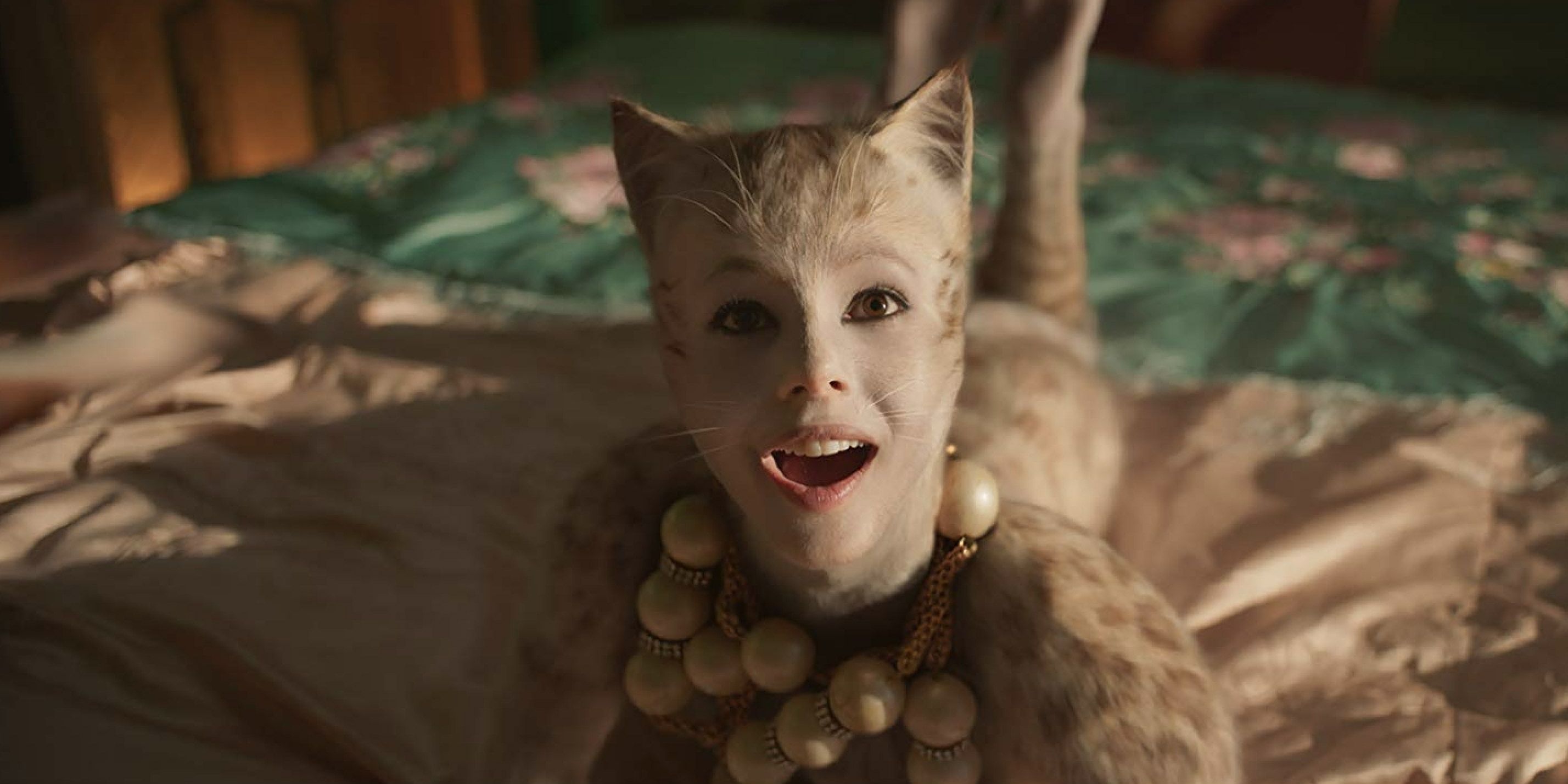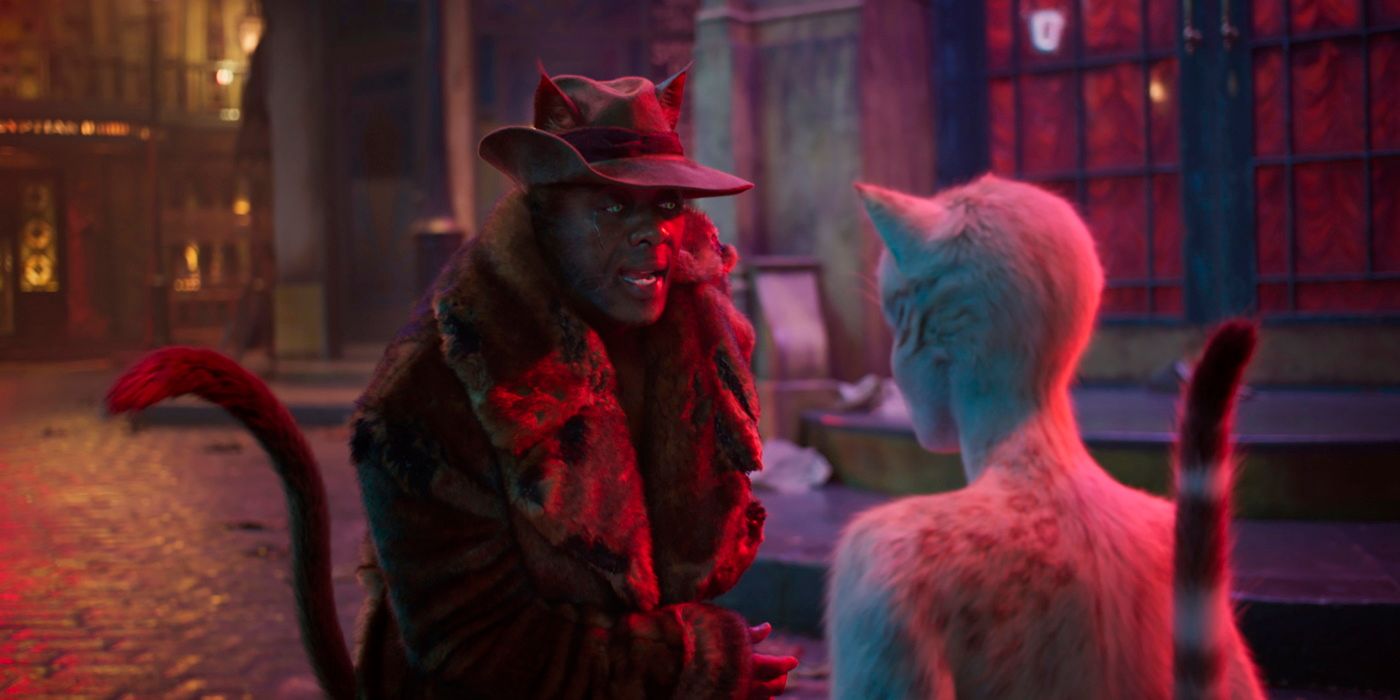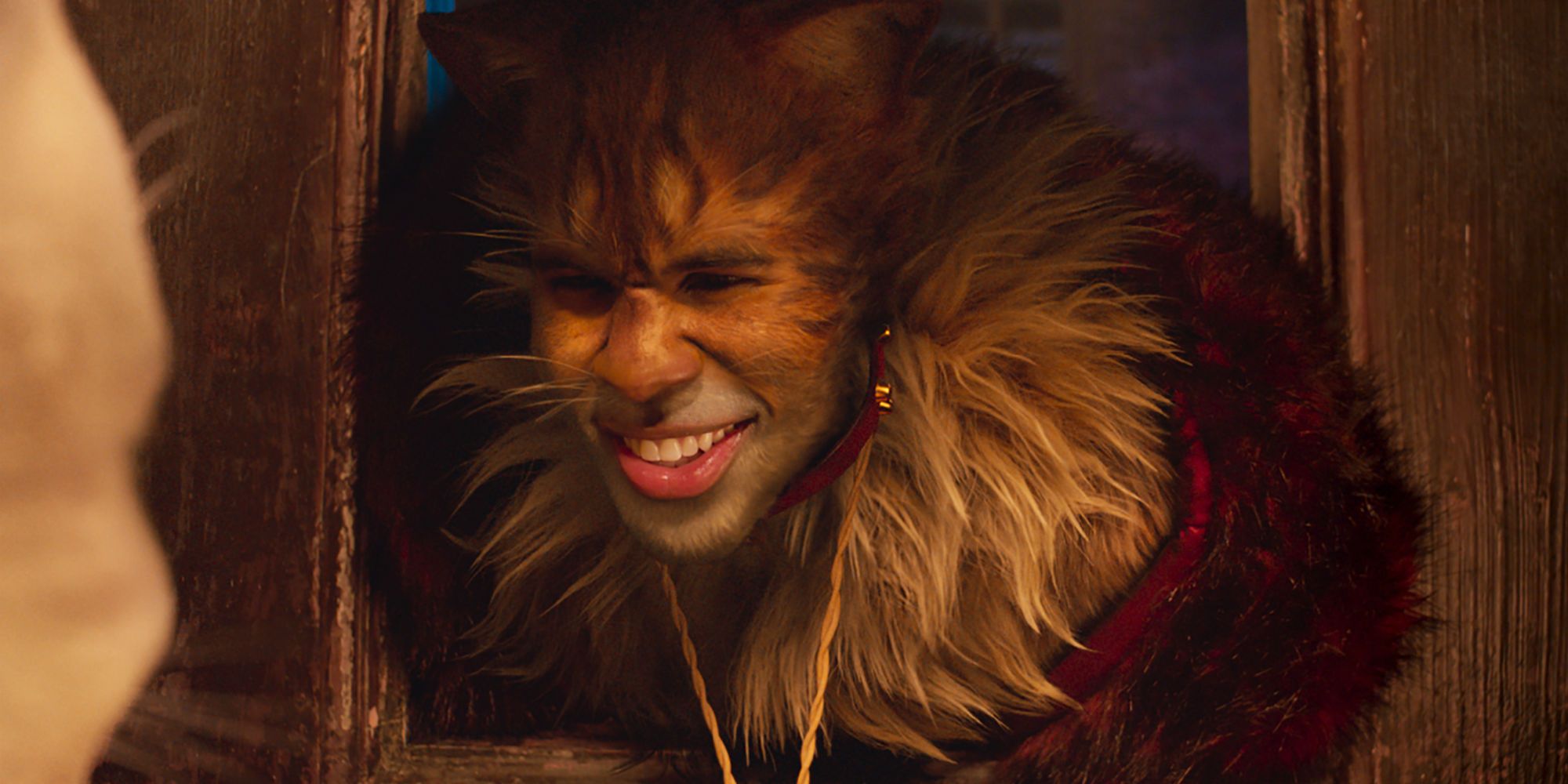Tom Hooper’s musical Cats was terrible - and the movie's box office is surely proof of that. Months before the first trailer dropped, Universal Studios were hyping up Cats, their big-screen adaptation of the musical by Andrew Lloyd Webber, as the ultimate family movie for the 2019 Christmas season as well as a potential awards darling.
Cats was certainly an ambitious undertaking: A $95 million CGI-heavy movie-musical about a tribe of singing and dancing cats, as played by a starry cast and some of the finest dancers in the industry. Clearly, Universal believed in the film, to the point where they scheduled its release on the same week as the premiere of Star Wars: The Rise of Skywalker. Suffice to say, things didn’t go their way.
Cats has grossed just over $58 million worldwide, with reports projecting close to a $71 million loss for the studio. After being lambasted by critics, Cats quickly became a must-see so-bad-it’s-hilarious for many viewers, and it looks set to become The Room of midnight madness musical movies. That’s not exactly the legacy that Universal or Lloyd Webber were hoping for, but just what made it so bad to begin with?
Cats Is Not A Good Musical To Begin With
It’s easy to understand why Universal was keen to make a movie from Cats. The musical premiered on the West End in 1981 and ran there for 21 years, playing for over 8,900 performances. It also ran on Broadway for 18 years and remains the fourth longest-running musical of all-time there. The most conservative predictions have the show's worldwide grosses over the decade totaling around $3.5 billion by 2012. That doesn’t even get into the show’s historic nature and how influential it was considered in the musical medium. Make no mistake: Cats is a very big deal. It’s just not an especially great musical.
That’s not to say it’s bereft of merits or that fans are wrong for liking it. Lloyd Webber has always known how to write a catchy hook and the era of the ‘80s mega-musical certainly yielded some fascinating and iconic aesthetics. To this day, Cats looks and feels like no other major musical. Its faults, however, are plentiful. This is notoriously a musical that doesn’t have a plot, given that it’s adapted from a loosely compiled book of poems about cats that was never intended to form a cohesive narrative, and Lloyd Webber was prevented from adding such a thing by the Eliot estate. The whole story, such as it is, is nonsensical and tough to keep up with, and not something that necessarily lends itself well to conventional storytelling or the adaptation process.
Cats is also extremely ‘80s, synth keyboards and all. It’s a show that has not aged well but has some kitsch charm if you embrace its inherent cheesiness, from the leg warmers to the weirdly large shoulder pads of some of these cats. The film retained all the worst elements of the material, from its outmoded nature to its unwieldy narrative, but lacked the humor and creativity to do anything interesting with it. This is particularly evident in the orchestrations for the songs, which sounds incredibly tinny and dated. Lloyd Webber was heavily involved with the production and, as he did with the Phantom of the Opera movie, wielded a lot of creative control, preferring to keep the adaptations as close to the stage shows as possible. That means that the weaknesses of the musicals are in full swing on the big screen in ways that are painfully difficult to ignore. Cats may be a weak source material but there were plenty of opportunities for the filmmakers to deviate from it and go wild with its sheer visceral strangeness. Instead, they played it oddly safe for a film that is so nightmarish.
The Cat Fur CGI is Poorly Executed
So much has been written about the now-infamous "digital fur technology" of Cats and the myriad ways it failed. Tom Hooper and company decided to eschew the musical's more theatrical approach to the cats themselves and aim for something close to realism but still from an entirely different planet. Now the actors have fully hairy bodies, cat ears, and tails. It was always a strange approach for the film to take. Why concentrate so much on making these actors look as much like cats as they can when the musical itself is heavily dance-focused and requires a greater focus on the human body? This meant that the audience could not help but spend too much time thinking about how strange and unnerving these cat-people looked and moved. Why does a cat have human feet and how can they go up en-pointe without shoes? The uncanny valley nature of it was at an all-time high.
Even if the CGI had been good, it’s doubtful that Cats could have succeeded, but it’s seriously hindered by how sloppy and flat-out unfinished the effects are. Faces float freely from bodies, which seem to blur in unnatural ways. You can occasionally see the outlines on people’s faces where their ears have been CGI-d out. In some scenes, hands and feet have been forgotten by the effects team, most notably in the final song where Judi Dench’s non-furry hand, complete with her wedding ring, is front and center. Hooper made a big song and dance about how he and the effects team were working right up to the film's premiere on its CGI, but that didn't stop Universal from announcing that they would release a different cut of the film with better visuals while it was still playing in theaters. That approach did not win over skeptical viewers.
Cats Doesn't Make the Most of the Movie Format
When Hooper made the movie version of Les Misérables, the directorial choices he made proved perplexing to the musical’s fans. Les Miz is one of the most iconically epic musicals in West End and Broadway history, a sweeping tale that covers decades of socio-political turmoil and includes dozens of named characters fighting against the backdrop of France in an era of rebellion and upheaval. Hooper took that story and made an oddly inert and limited movie from it, one overladen with close-ups and a false stab at intimacy that still tried to bring the lavish details of period drama to the table. Everything looked too small, and that’s a problem for a show as big as Les Miz. You got the feeling that Hooper would rather not be making a musical at all.
That sensation is especially evident in Cats, which aims for a strange sort of worthiness in its stylistic approach that is utterly at odds with the source material. He makes no use of spacing, for example, which means the dance sequences feel boxed in an unimportant. Musical numbers like “Memory”, which should fill the screen, are shot in close-up and do the actors (and their scary CGI cat-faces) no favors. Hooper clearly isn’t adept at dealing with this level of VFX and his hand-held heavy cinematography leeches the design of its vibrancy and appeal. Cats is a very silly show and Hooper seems terrified of acknowledging that fact, but playing everything so seriously ends up being inadvertently hilarious to the audience.
The Songs Are (Mostly) Bad
Lloyd Webber has been something of a musical punching bag for most of his career, a composer who has been criticized for his derivative approach (and been accused of plagiarism on multiple occasions) all while preferring commercial success over critical clout. He’s never been celebrated on an artistic level in the same way that, say, Stephen Sondheim has. What he is good at is a pop-music earworm, and Cats has the mother of all inescapable ballads in the form of “Memory.” However, it’s really one of only three or four truly memorable songs in the musical, with the rest being so forgettable and derivative. For long stretches of Cats, when you’re not deeply unnerved by the digital fur technology, you’re mostly bored by the music, which is a major failure of a musical that can’t be ignored.
Cats has its positives but the movie has no idea how to elevate them while dealing with the problems inherent to the source material, so the final product cannot help but be a fascinating mess. This feels like the only movie that could have been made from adapting the show but that doesn’t excuse some of its more bizarrely inept choices. Cats will be remembered but probably not for the reasons Tom Hooper and Universal were hoping for.

